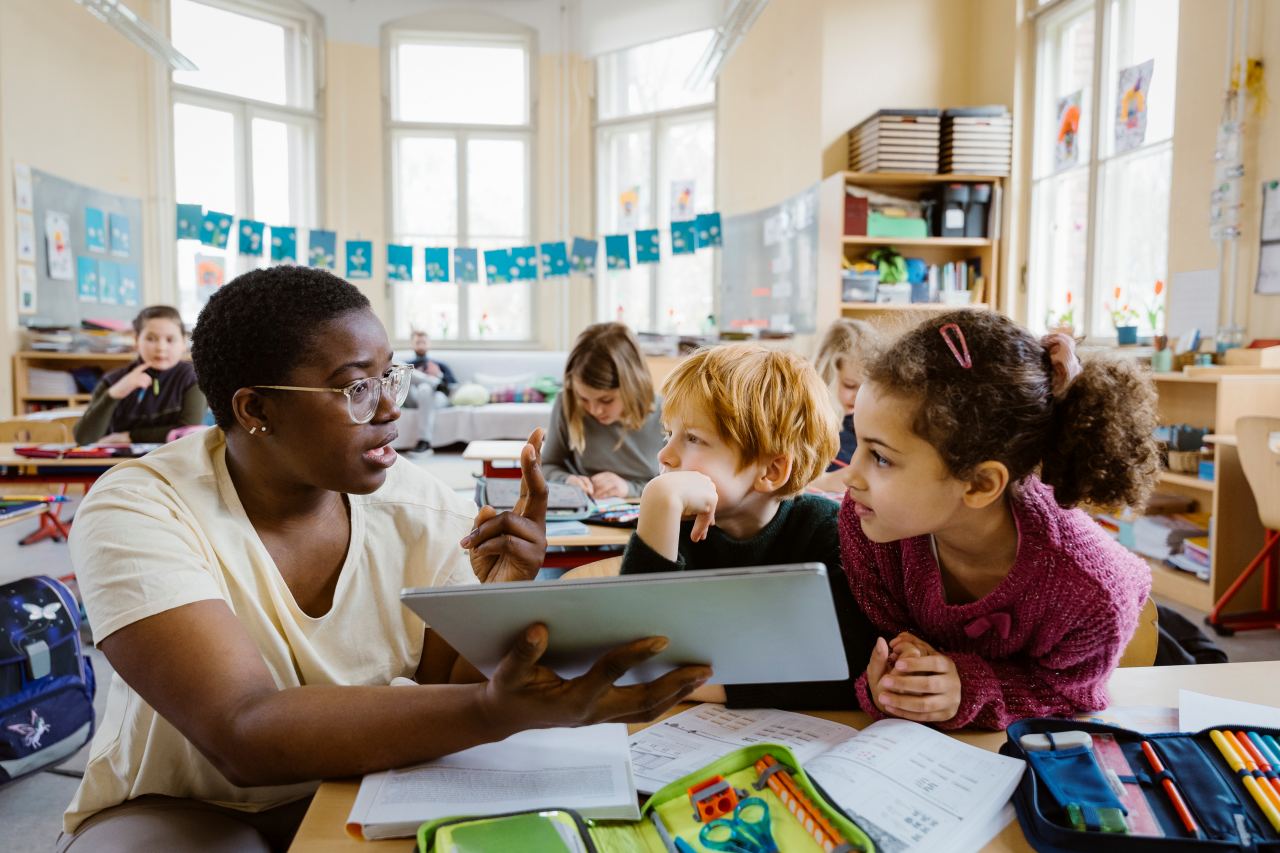Master Primary Science Concepts with Quality Tuition in Singapore
Master Primary Science Concepts with Quality Tuition in Singapore
Blog Article
Discover the Essential Advantages of Comprehending Main Science for Young Learners
The importance of primary science education and learning for young learners prolongs far beyond simple knowledge acquisition; it offers as a fundamental pillar in establishing necessary skills such as essential reasoning, analytic, and imagination. Engaging with scientific concepts via inquiry-based and interactive tasks not only grows curiosity but additionally lays the foundation for resilient, certain learners.
Enhancing Crucial Assuming Skills
Fostering critical believing abilities in young students is important for their cognitive growth and future academic success. Critical reasoning makes it possible for youngsters to evaluate details, assess proof, and make notified choices, which are essential skills in today's information-rich society. By involving in clinical query, young learners can enhance these abilities as they check out principles with experimentation, monitoring, and thinking.
In key science education, educators can facilitate essential reasoning by encouraging trainees to ask concerns, develop theories, and conduct experiments. This hands-on strategy enables youngsters to exercise analytical and develop rational reasoning abilities. When trainees check out the homes of products or the concepts of movement, they discover to examine their findings seriously and draw conclusions based on proof.
In addition, conversations and joint projects can promote crucial thinking by providing opportunities for students to articulate their thoughts, challenge presumptions, and take into consideration varied point of views. By developing an encouraging setting that values query and reflection, instructors can support critical thinking abilities that equip young learners to come to be long-lasting learners and independent thinkers. Inevitably, boosting these abilities lays a durable foundation for their future scholastic ventures and personal development.
Fostering Curiosity and Expedition

Main science education and learning provides a structured atmosphere where young students can check out various sensations with hands-on experiments and observations. By enabling them to connect with products and take part in inquiry-based knowing, instructors produce chances for kids to develop theories, examine their ideas, and draw verdicts. Such experiences support a sense of marvel and excitement concerning science.

Building Confidence in Problem Resolving
Structure self-confidence in analytic is a crucial element of key science education that empowers young learners to approach difficulties with strength and imagination - primary science tuition Singapore. They create important abilities in important thinking and evaluation when kids are motivated to involve with scientific concepts through hands-on activities and inquiry-based knowing. This procedure not just improves their understanding of clinical concepts however additionally fosters a feeling of ownership over their understanding
To develop self-confidence, teachers must create an encouraging environment where mistakes are considered as chances for growth as opposed to failures. This motivates pupils to take risks and check out numerous solutions to problems. By providing scaffolding and assistance, teachers can aid pupils browse complicated tasks, progressively increasing their independence in problem-solving circumstances.
Additionally, joint understanding experiences, such as team projects or experiments, can better enhance trainees' confidence as they learn to articulate their thoughts and pay attention to others' point of views. These interactions nurture social abilities and reinforce the idea that analytic is typically navigate to this site a cumulative endeavor. Ultimately, cultivating confidence in analytic prepares young learners for future scholastic difficulties and equips them with the tools required for lifelong knowing.
Encouraging Creative Thinking and Technology
In the world of key scientific research education and learning, urging imagination and technology is vital for growing a dynamic discovering environment. By cultivating a culture where young students can discover ideas and experiment freely, educators aid trainees develop critical thinking abilities and an enthusiasm for discovery. Creative thinking in scientific research urges kids to ask concerns, develop theories, and engage in hands-on tasks that promote their imagination.
Incorporating flexible projects and inquiry-based discovering right into the educational program allows pupils to express their one-of-a-kind viewpoints and services. When entrusted with addressing an issue associated to their setting, students can conceptualize multiple strategies, leading to inventive results that showcase their originality. This not just strengthens their understanding of clinical ideas but additionally instills a sense of possession over their understanding procedure.
Moreover, imaginative scientific research education supports cooperation amongst peers, as students typically share concepts and improve each other's understandings - primary science tuition Singapore. This collective spirit promotes not only innovation however likewise important social skills. Hence, by prioritizing creativity and technology in primary scientific research education and learning, we encourage young learners to believe seriously, accept difficulties, and imagine opportunities, laying a solid structure for lifelong knowing and expedition
Getting Ready For Future Discovering Obstacles
Young learners' capacity to navigate future learning obstacles rests on a solid structure in key scientific research education. This fundamental understanding furnishes students with critical thinking skills and a systematic strategy to analytic, crucial for tackling complicated concerns in an ever-evolving globe. Main science promotes inquiry-based knowing, urging students to ask questions, explore hypotheses, and involve in hands-on experiments.
As they create these abilities, learners end up being experienced Related Site at analyzing information, identifying patterns, and attracting notified verdicts. Such proficiencies are essential not just in clinical areas but additionally in math, technology, and design (STEM), where interdisciplinary knowledge is progressively important.
Additionally, key science education grows a feeling of inquisitiveness and durability in young students, enabling them to view difficulties as possibilities for growth. As they come across and conquer challenges in their scientific expeditions, they construct confidence in their capability to adjust and introduce.
Eventually, a solid foundation in main science not only prepares young students for academic searches however likewise furnishes them with the tools necessary for long-lasting knowing and adaptability in a rapidly altering global landscape. By spending in primary scientific research education and learning, we are buying the future potential of our learners.
Verdict
Recognizing key scientific research is essential for young learners, as it cultivates vital thinking, inquisitiveness, and creativity. Engaging with scientific ideas with hands-on experiments enhances analytic abilities and develops durability. This foundational knowledge not just gears up trainees to analyze data and recognize patterns however also nurtures an inquiry-based mindset. Inevitably, the advantages of primary science education and learning prepare kids for future scholastic searches and impart lifelong learning practices necessary for flourishing in an ever-evolving globe.
The value of primary science education and learning for young learners expands much beyond simple understanding acquisition; it offers as an essential pillar in establishing necessary abilities such as vital reasoning, problem-solving, and creative thinking. By creating a helpful setting that values questions and representation, instructors can nurture vital assuming abilities that empower young students to end up being independent thinkers and long-lasting students. Thus, by prioritizing imagination and technology in key scientific research education, we empower young learners to assume seriously, embrace difficulties, and visualize possibilities, laying a solid foundation for long-lasting discovering and exploration.
Young learners' ability to browse future learning obstacles hinges on straight from the source a strong structure in primary science education.Comprehending primary scientific research is crucial for young learners, as it cultivates crucial thinking, curiosity, and creativity.
Report this page